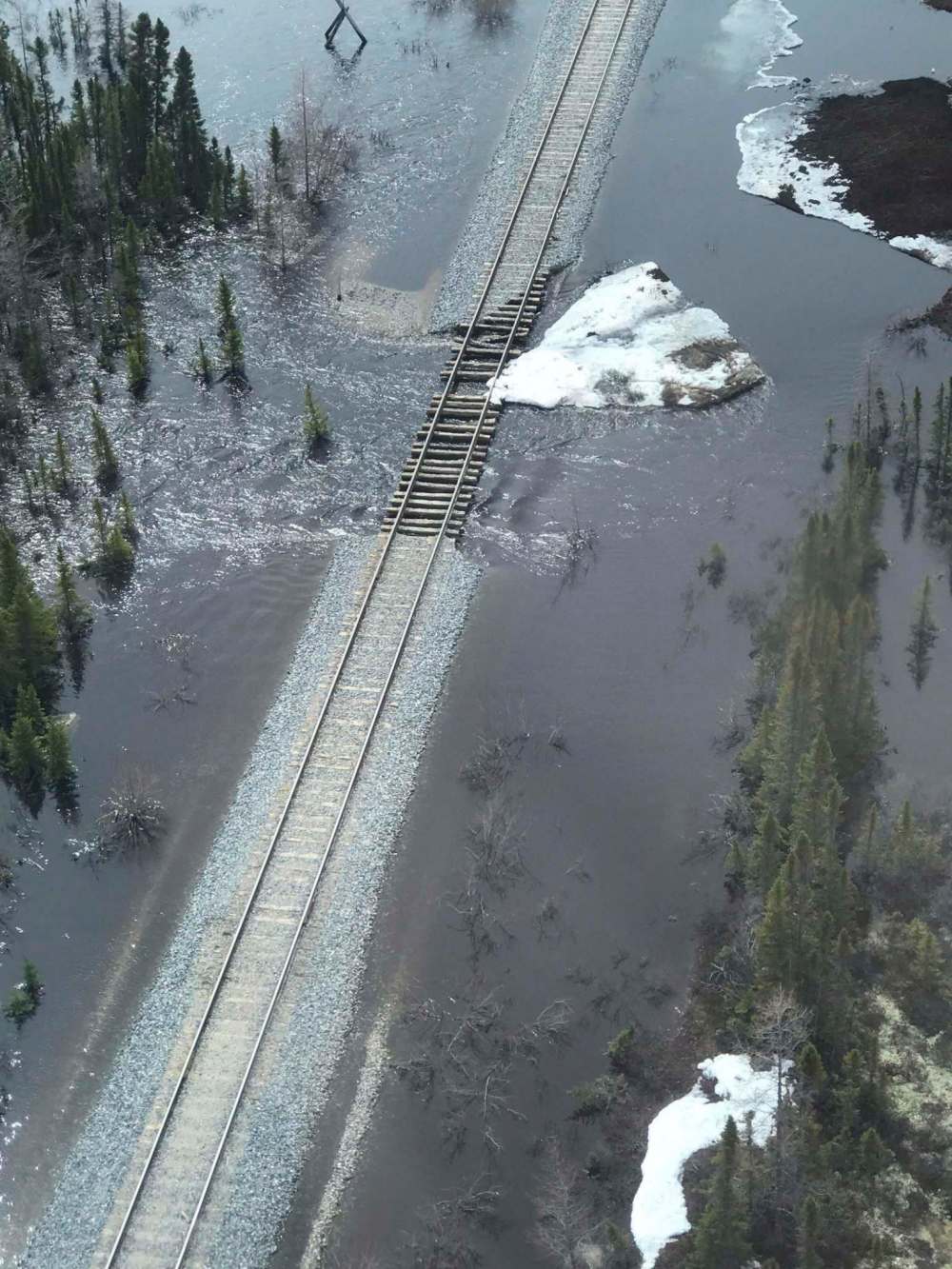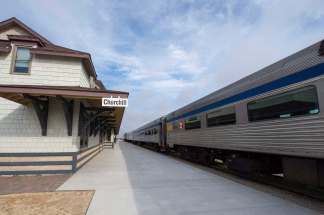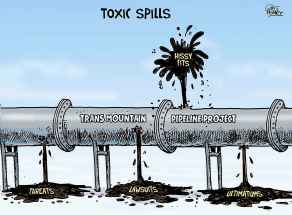Make railway to Churchill a public asset
Read this article for free:
or
Already have an account? Log in here »
To continue reading, please subscribe:
Monthly Digital Subscription
$0 for the first 4 weeks*
- Enjoy unlimited reading on winnipegfreepress.com
- Read the E-Edition, our digital replica newspaper
- Access News Break, our award-winning app
- Play interactive puzzles
*No charge for 4 weeks then price increases to the regular rate of $19.00 plus GST every four weeks. Offer available to new and qualified returning subscribers only. Cancel any time.
Monthly Digital Subscription
$4.75/week*
- Enjoy unlimited reading on winnipegfreepress.com
- Read the E-Edition, our digital replica newspaper
- Access News Break, our award-winning app
- Play interactive puzzles
*Billed as $19 plus GST every four weeks. Cancel any time.
To continue reading, please subscribe:
Add Free Press access to your Brandon Sun subscription for only an additional
$1 for the first 4 weeks*
*Your next subscription payment will increase by $1.00 and you will be charged $16.99 plus GST for four weeks. After four weeks, your payment will increase to $23.99 plus GST every four weeks.
Read unlimited articles for free today:
or
Already have an account? Log in here »
Hey there, time traveller!
This article was published 25/05/2018 (2755 days ago), so information in it may no longer be current.
By now it’s become apparent that Churchill is no longer Manitoba’s largest, northern-most community. It’s a collection of hostages.
Before dismissing the hostage-taking analogy, consider the following facts:
Churchill is largely dependent upon rail transportation for its survival. To provide the community with all it needs — fuel, food, building materials, motor vehicles, dry goods — the Hudson Bay Railway, which connects Churchill to The Pas, must be operational. And one year ago, that railway fell into disservice.

Since the railway ceased operations, Omnitrax, the Denver-based owner of the railway and port, has refused to do any work on the line. It no longer wants to own a money-losing line in northern Manitoba, but won’t walk away. Omnitrax wants to be paid to leave.
That is something government is unwilling to do. Ottawa has tried to sue Omnitrax to recoup taxpayer investments in the line, but a court said the legal action could only be taken against the Hudson Bay Railway Company, a cash- and asset-poor subsidiary of Omnitrax.
If HBRC declares bankruptcy, which it has not done to date, Ottawa might be able to seize the railway. But then it would be on the hook for all of the costs of repairing it and bringing it back to full service, something federal officials have shown little interest in taking on.
The result is a community that has been taken captive by a corporate entity that is using a northern community’s suffering as leverage to get government to pay the company to walk away. Government, on the other hand, has dug in its heels, unwilling to pay a company that it suspects has never quite lived up to its obligations to maintain the railway.
By all applicable definitions and measurements, this would certainly qualify as a hostage taking.
Will anyone come to Churchill’s aid?
Manitoba’s Progressive Conservative government believes, with some justification, that this is a federal issue. Although that may give Premier Brian Pallister the moral high ground in jurisdictional terms, it’s doing nothing to help find a solution. Manitoba should not write a blank cheque to save the railway; the province should, however, take the lead on proposing a solution.

That solution should involve the recasting of the railway as public infrastructure. Although the railway is not commercially viable, it is still an important piece of transportation infrastructure that serves the north, much in the way highways do in the south. Hardly anyone takes issue with government investing in highways.
There is no point in looking for other private owners. The cost of the repairs — estimated to be as much as $50 million — would be enough to scare off any serious investor. Taxpayer-funded repairs are a precursor to putting the railway into private hands. If Omnitrax has done anything for Manitoba, it is to expose the folly of that policy.
The province should be talking with Ottawa about creating a public entity to repair and run the railway. It should view any repair costs as a justifiable use of taxpayer money, the same way we would view the repaving of a highway in the south. If there are northern interests — private sector or Indigenous — that want to be involved, government could negotiate a management contract to ensure there is some economic benefit throughout the region.
What government can no longer do, however, is sit by idly while Churchill sinks deeper into isolation and despair. It’s time to make the railway a public asset and get on with the job of returning it to working service.








